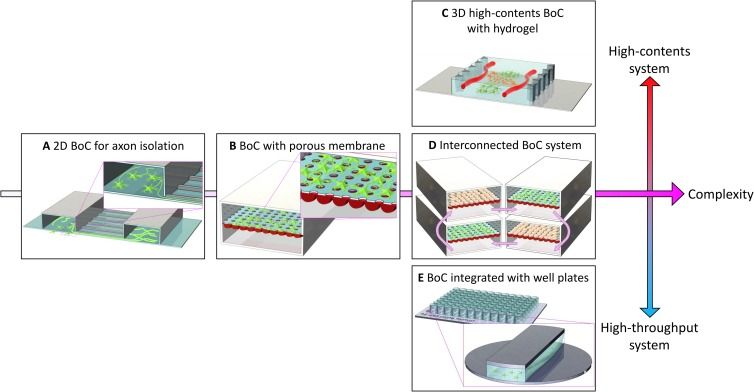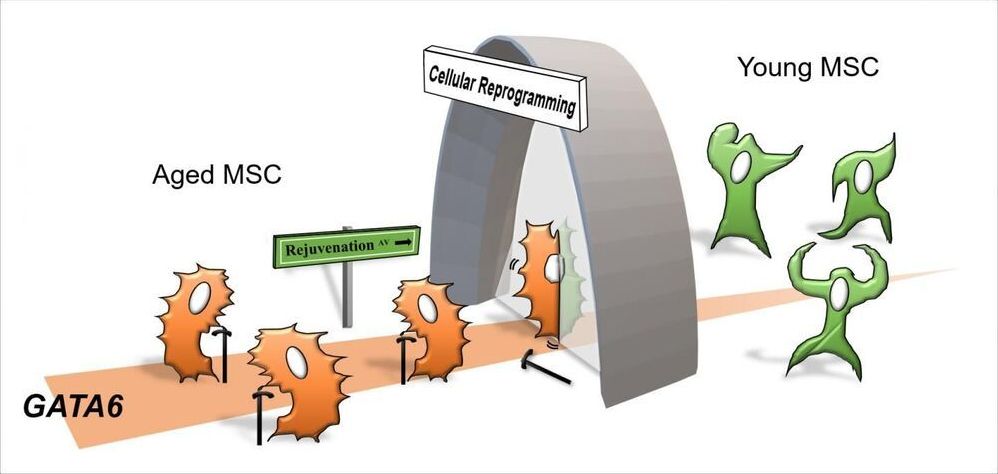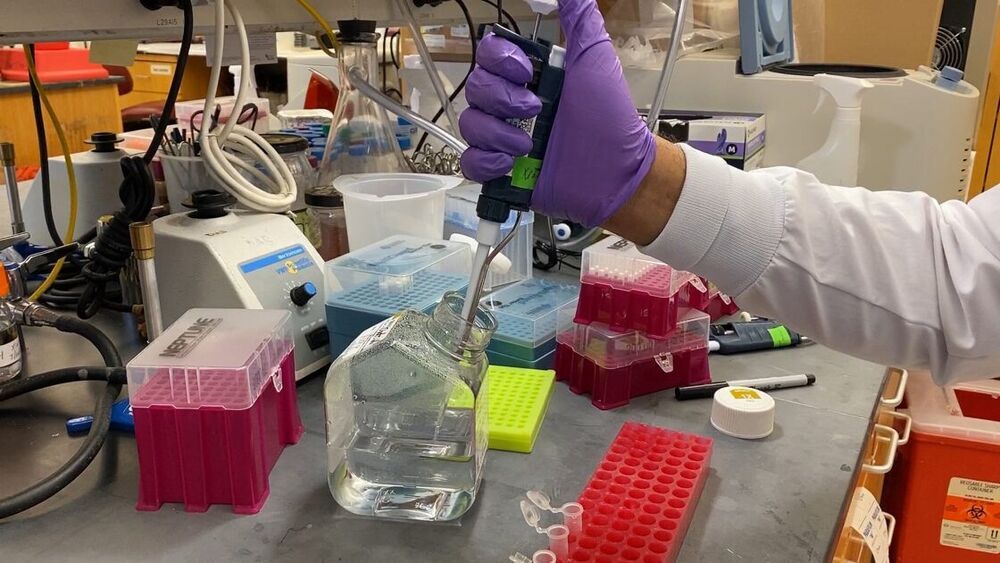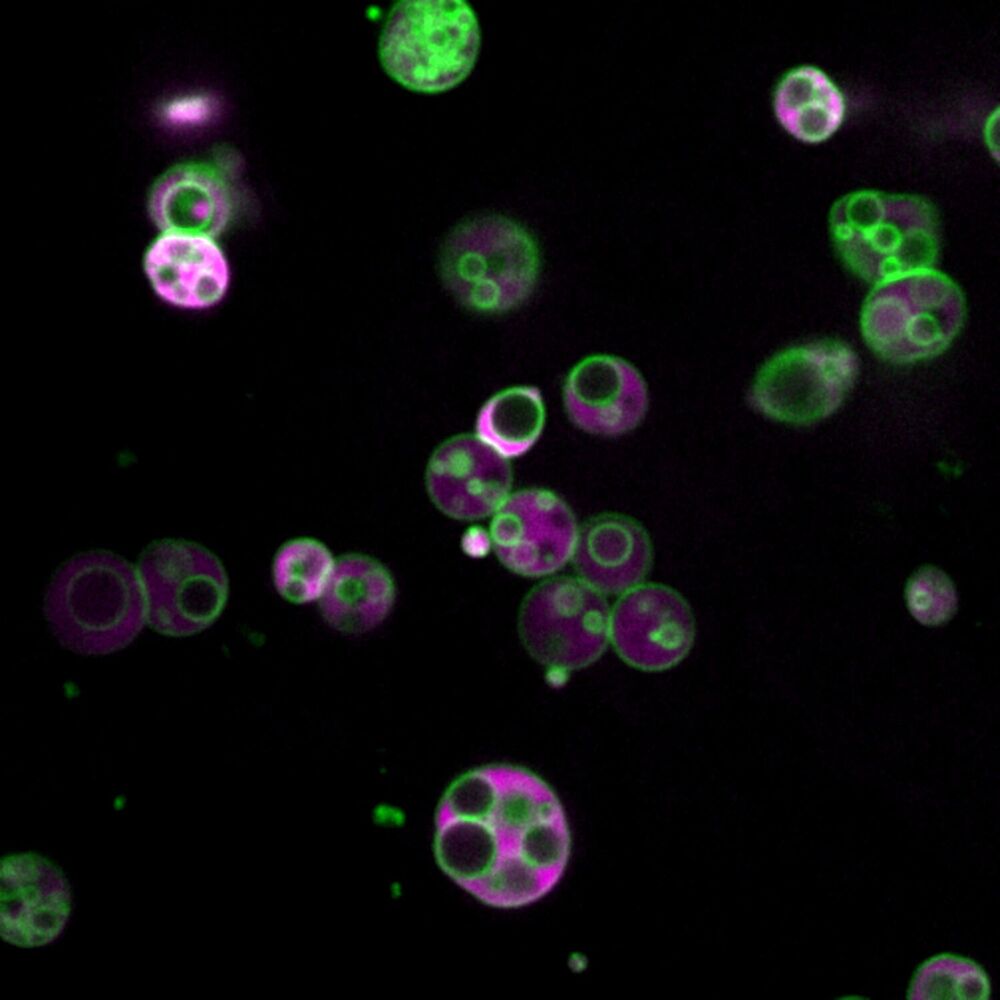Despite early failures in the clinic, the idea of anti-aging therapies that purge the body of dying cells is gaining traction with a raft of startups now focused on senescence.



Brain on a chip for drug discovery.
Since the advent of organ-on-a-chip, many researchers have tried to mimic the physiology of human tissue on an engineered platform. In the case of brain tissue, structural connections and cell–cell interactions are important factors for brain function. The recent development of brain-on-a-chip is an effort to mimic those structural and functional aspects of brain tissue within a miniaturized engineered platform. From this perspective, we provide an overview of trace of brain-on-a-chip development, especially in terms of complexity and high-content/high-throughput screening capabilities, and future perspectives on more in vivo-like brain-on-a-chip development.
With the advent of an aging society, the disease incidence rate is increasing, and the cost of drug development and disease treatment is expanding exponentially.1,2 According to the World Health Organization (WHO), nearly one billion people in the world suffer from neurodegenerative diseases such as Alzheimer’s (AD) and Parkinson’s diseases.3 Despite decades of research on neurodegenerative diseases by many biologists and pharmaceutical companies, the underlying mechanism of their onset and progression is still largely unknown. The resolution of these diseases has a long way to go, and such steps are limited due to the lack of a suitable in vitro model system for mechanism study and drug development. In particular, the complex tissue structures and cell–cell interactions of the in vivo system make it challenging to unravel the underlying mechanism of the diseases and to predict the efficacy of clinical medicine.

Advanced, others might like.
The exact gene that caused stem cell aging has been identified.
Above – When mesenchymal stem/stromal cells (MSCs) age, the transcription factor GATA6 is increasingly produced in the cell to induce aging response. By transcription factor-based cellular reprogramming, aged MSCs are rejuvenated with a reduction in GATA6 effects on cellular aging. CREDIT AlphaMed Press
University of Wisconsin-Madison researchers found that the expression of GATA6, a protein that plays an important role in gut, lung and heart development, was repressed in the reprogrammed cells compared to the control cells. This repression led to an increase in the activity of a protein essential to embryonic development called sonic hedgehog (SHH) as well as the expression level of yet another protein, FOXP1, necessary for proper development of the brain, heart and lung. “Thus, we identified the GATA6/SHH/FOXP1 pathway as a key mechanism that regulates MSC aging and rejuvenation,” Dr. Li said.
Part of my series to give a good grounding in the basics surrounding the subject of human health and longevity, for anyone interested, this week it is Sirtuins.
Are they one of the keys to the door towards ending aging?
I give a basic explanation of what sirtuins are and how they are being investigated for their influence on health span and length of life.
Sirtuin signaling in cellular senescence and aging
http://www.bmbreports.org/journal/view.html?uid=1333&vmd=Full&
Sirtuins and NAD+ in the Development and Treatment of Metabolic and Cardiovascular Diseases
I didn’t realize there were so many 3rd-party genetic analysis services. If you’ve already done something like 23andMe have you tried uploading your raw DNA data to one of these other websites?
Note: This piece on genetic analysis is the third in our series of posts about DNA tests for health and longevity. To better understand the basics of DNA and the different types of DNA tests on the market please go back and read our first piece on The Benefits of Genetic Testing for Longevity, and for an in-depth comparison of DNA testing companies please read the second piece on the Best DNA Tests for Health and Longevity.
Affiliate Disclaimer: Longevity Advice is reader-supported. When you buy using links on our site, we may earn commissions.
Imagine, for a moment, that time travel is real.

Harvard Medical School scientists report they have successfully restored vision in mice by turning back the clock on aged eye cells in the retina to recapture youthful gene function.
The team’s work, described Dec. 2 in the publication Nature, represents the first demonstration that it may be possible to safely reprogram complex tissues, such as the nerve cells of the eye, to an earlier age.
In addition to resetting the cells’ aging clock, the researchers successfully reversed vision loss in animals with a condition mimicking human glaucoma, a leading cause of blindness around the world.

This is very helpful in reducing signs in aging.
Buy Enzymedica, Stem XCell, Antioxidant Support for Cellular Renewal, Brain Health and Stem Cell Regeneration, Vegetarian and Non-GMO, 60 Capsules (30 Servings) on Amazon.com ✓ FREE SHIPPING on qualified orders.
Brain Muraresku, author of “The Immortality Key — The Secret History Of The Religion With No Name”, discussing his fascinating journey to discover psychedelic potions from antiquity, reconstruct their history in the development of religion and civilization, and their development into a modern neuro-pharmacopoeia.
On today’s show we are going to be weaving together a really interesting range of themes including psychedelics, pharmacognosy and medicinal botany, history, religion & spirituality, end of life care, dreaming, mental health and a whole lot more.
Brian Muraresku is the author of “The Immortality Key: The Secret History of the Religion with No Name”.
Brian graduated Phi Beta Kappa from Brown University with a degree in Latin, Greek and Sanskrit. As an alumnus of Georgetown Law and a member of the New York Bar, he has been practicing law internationally for fifteen years.
He is also founding executive director of Doctors for Cannabis Regulation. Their work has been featured on CNN and ESPN, as well as The Washington Post and San Francisco Chronicle. In arbitration with the NFL in 2018, Mr. Muraresku represented the first professional athlete in the United States to seek a therapeutic use exemption for cannabis.

Just a few doses of an experimental drug can reverse age-related declines in memory and mental flexibility in mice, according to a new study by UC San Francisco scientists. The drug, called ISRIB, has already been shown in laboratory studies to restore memory function months after traumatic brain injury (TBI), reverse cognitive impairments in Down Syndrome, prevent noise-related hearing loss, fight certain types of prostate cancer, and even enhance cognition in healthy animals.
In the new study, published Dec. 1, 2020, in the open-access journal eLife, researchers showed rapid restoration of youthful cognitive abilities in aged mice, accompanied by a rejuvenation of brain and immune cells that could help explain improvements in brain function.
“ISRIB’s extremely rapid effects show for the first time that a significant component of age-related cognitive losses may be caused by a kind of reversible physiological “blockage” rather than more permanent degradation,” said Susanna Rosi, PhD, Lewis and Ruth Cozen Chair II and professor in the departments of Neurological Surgery and of Physical Therapy and Rehabilitation Science.

**Peroxisomes are compartments where cells turn fatty molecules into energy and useful materials, like the myelin sheaths that protect nerve cells. In humans, peroxisome dysfunction has been linked to severe metabolic disorders, and peroxisomes may have wider significance for neurodegeneration, obesity, cancer and age-related disorders.**
Peroxisomes are also highly conserved, from plants to yeast to humans, and Bartel said there are hints that these structures may be general features of peroxisomes.
“Peroxisomes are a basic organelle that has been with eukaryotes for a very long time, and there have been observations across eukaryotes, often in particular mutants, where the peroxisomes are either bigger or less packed with proteins, and thus easier to visualize,” she said. But people didn’t necessarily pay attention to those observations because the enlarged peroxisomes resulted from known mutations.
The researchers aren’t sure what purpose is served by the subcompartments, but Wright has a hypothesis.
“When you’re talking about things like beta-oxidation, or metabolism of fats, you get to the point that the molecules don’t want to be in water anymore,” Wright said. “When you think of a traditional kind of biochemical reaction, we just have a substrate floating around in the water environment of a cell—the lumen—and interacting with enzymes; that doesn’t work so well if you’ve got something that doesn’t want to hang around in the water.”
“So, if you’re using these membranes to solubilize the water-insoluble metabolites, and allow better access to lumenal enzymes, it may represent a general strategy to more efficiently deal with that kind of metabolism,” he said.
Bartel said the discovery also provides a new context for understanding peroxisomal disorders.